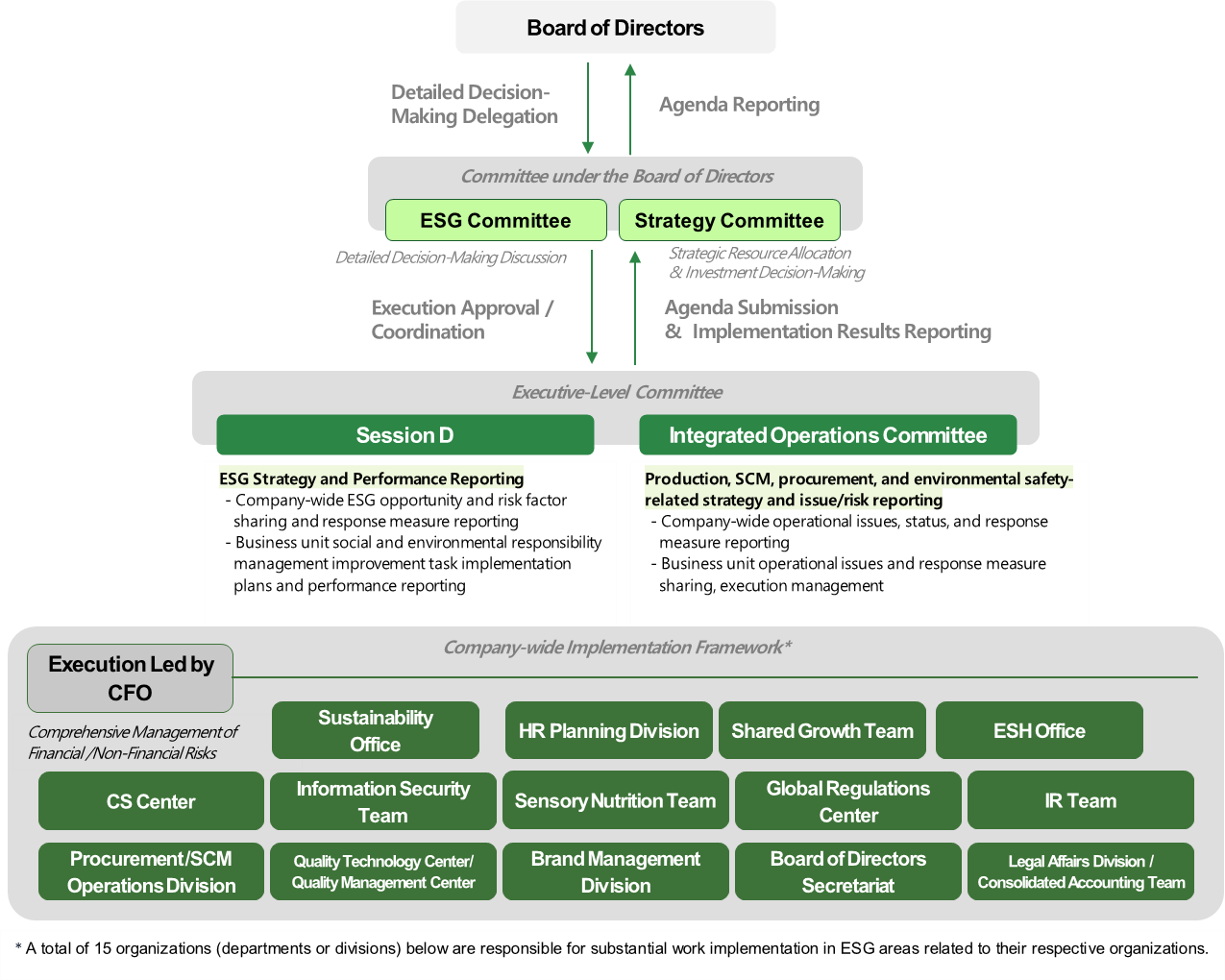ESG Governance Oversight
ESG Governance
Committee under the Board of Directors
The ESG Committee is one of the subcommittees established within the Board of Directors, serving as Pulmuone's supreme decision-making body for social and environmental responsibility management, empowered to discuss risks and opportunities across environmental, social, and governance dimensions and approve response strategies. Through this, the company clarifies board-level responsibility for sustainable management and simultaneously pursues long-term corporate value enhancement and social responsibility.
The primary function of the ESG Committee is to manage the company's sustainable management goals, strategies, framework, and performance while transparently communicating these externally. The committee comprehensively reviews ESG-related risks and opportunities, intensively monitoring and deliberating on key issues identified through materiality assessment. Additionally, it establishes corporate direction and ensures execution by reviewing and approving Pulmuone's ESG and sector-specific policies, guidelines, and risk management strategies. The detailed ESG areas consist of a total of 22 categories including environment, occupational safety and health, supply chain, information security, human rights, and food safety, which the ESG Committee reviews comprehensively. Furthermore, it approves the publication of integrated reports containing annual ESG performance for transparent disclosure to stakeholders.
In this manner, Pulmuone's ESG Committee deliberates strategies and policies across governance while thoroughly managing material issues such as climate change, occupational safety and health, supply chain, information security, and human rights. Through this, ESG is firmly established as a core management agenda, and board-level responsibility for sustainability realization is actively fulfilled.
Role of Executive-Level Committee
In addition to board-level oversight through the ESG Committee, Session D and the Integrated Steering Committee are operated at the management level to strengthen sustainable management. Both committees serve as management decision-making bodies with participation from C-level executives including the CEO, managing and overseeing ESG-related strategic tasks and major operational issues.
Session D is an organization that reports and reviews company-wide ESG strategies and performance, sharing ESG opportunities and risks across the company and discussing response measures. It also regularly monitors plans and performance for improving social and environmental responsibility management in each business unit. Directly chaired by the CEO, it includes business unit representatives and, when necessary, executives from ESG-related functional departments, driving substantive management-level decision-making.
The Integrated Steering Committee intensively manages strategic issues and risks that may arise in major operational areas such as production, SCM, procurement, and environmental safety. With participation from the COO, business unit representatives, and SCM and logistics division heads, it evaluates company-wide operational issues, establishes response measures, and performs execution management and risk identification. Through this, Pulmuone practices systematic sustainable management across all operations.
Furthermore, Pulmuone's Chief Sustainability Officer (CSO) is served by CFO Kim Jong-heon, who comprehensively manages financial and non-financial risks. Under the leadership of CSO (CFO) Kim Jong-heon, business unit representatives and C-level executives regularly manage the entire process from establishing sector-specific sustainability goals to strategy implementation and monitoring, playing a role in integrating ESG across overall management.










